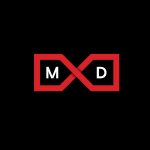What’s under the hood of an electric vehicle? A growing controversy, because the complex supply chain responsible for the battery and other components potentially includes work done by forced laborers in the Xinjiang region of China.
A report by British researchers and a separate Washington Post investigation identify connections between manufacturing, mining, and processing companies in Xinjiang and the production of electric vehicles by major global brands.
The report published by Sheffield Hallam University showed “massive and expanding links between Western car brands and (human rights) abuses, in everything from the hood decals and car frames to engine casings, interiors, and electronics.”
The Washington Post said: “Firms that appear to undermine a U.S. ban on products made in Xinjiang emerge near the top of Tesla’s sprawling network of suppliers.”
Chinese authorities are accused of committing abuses against minority Muslim residents of Xinjiang. There have been widespread reports of Muslim Uyghurs sent to labor or re-education camps and required to work on farms or in factories. U.S. law bans imports from Xinjiang unless proven they don’t involve forced labor. That proof is difficult for companies to obtain because of China’s lack of cooperation. The Chinese government denies committing abuses.
The Post, working with a firm called Horizon Advisory, said it looked at Chinese supply chains that provide the EV industry with lithium, aluminum, and graphene for batteries, bodies, and other parts. “Each chain originated with companies that openly operate in Xinjiang using local labor,” The Post said.
The Post and Sheffield Hallam researchers traced EV supplier connections such as one to an industrial firm called Xinjiang Zhonghe Co., which, The Post said, “is deeply involved in carrying out the Chinese government’s labor transfer programs.” That company is a supplier to Shandong Nanshan Aluminum, which supplies metal for EV batteries and exteriors to Tesla and several other automakers, The Post said. Tesla didn’t respond to detailed questions from The Post.
Sheffield Hallam said it found 96 Chinese EV industry companies doing work in the Uyghur region, “including 38 with documented engagement in labor transfer programs. Over 100 international car and car parts manufacturers are at risk of sourcing from those companies.”
These two investigations show how complex supply chains create legal and ethical risks for companies operating in countries such as China with opaque, uncooperative governments.
“We knew that there was forced labor built into the whole program,” Kendyl Salcito, a co-author of the report from the Helena Kennedy Center for International Justice at Sheffield Hallam, told the Post. “But we didn’t know it would touch on so many commodities and parts. We hadn’t actually understood how horrific the spread of forced labor was in this sector.”
Read the complete Issue 46 of ChainMail here.
Enjoying this story? Subscribe to ChainMail, MxD’s newsletter on breaking supply chain news, trends, and updates.
